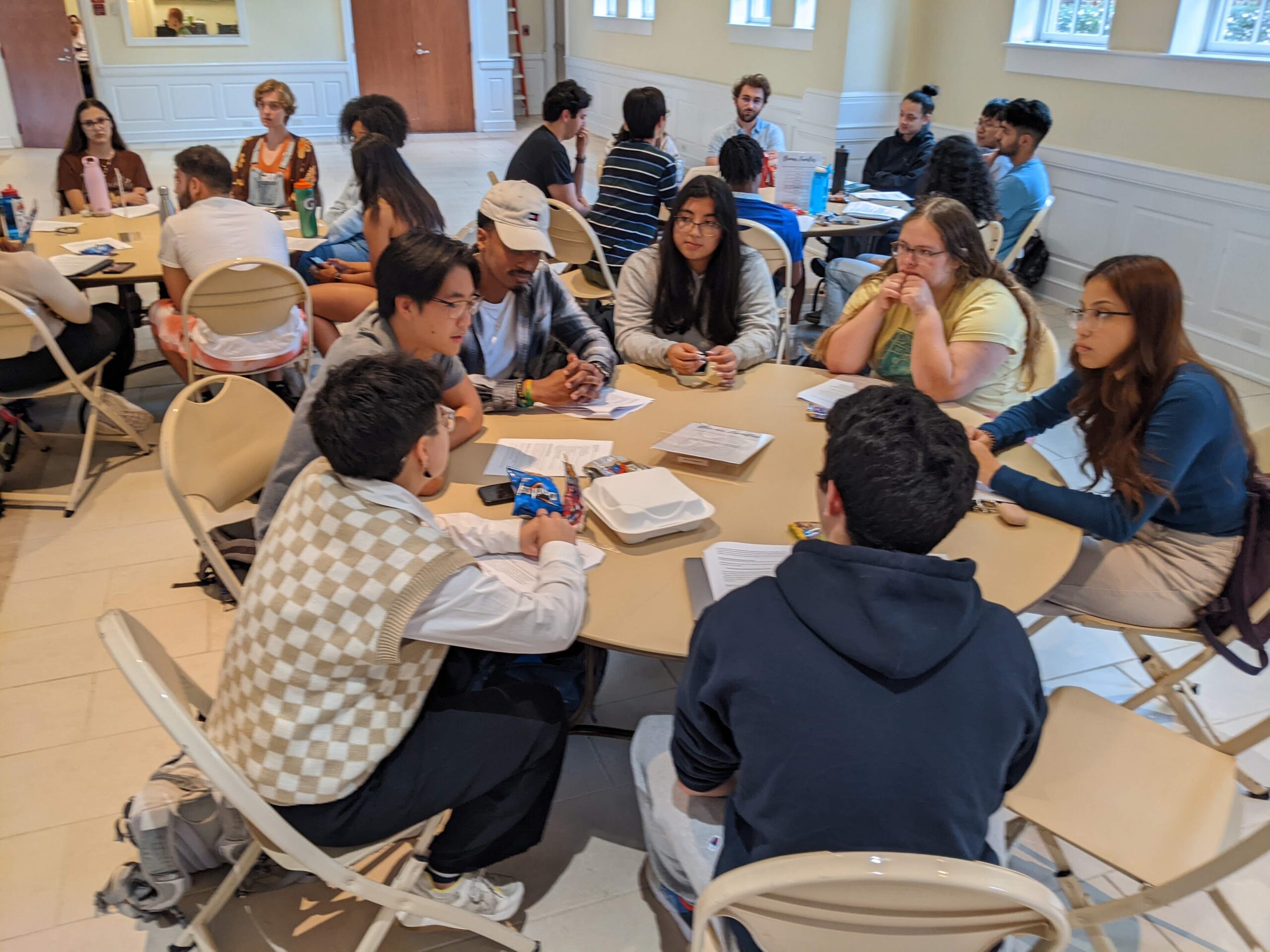
By Ahtziri Gonsalez (DCI Fellow)
Over the past few years, I have noticed that students are very vocal about bringing attention to issues in their communities. We have conversations about current issues, discuss different opinions, and help educate one another through platforms like Instagram or even the infamous YikYak. Still, when it comes to sitting down to have a conversation about different issues outside of a classroom or with people that you are not that close to, not a lot of people tend to participate. Does this matter?
Deliberation can be a word often associated with confrontation or arguments. Still, it can also be thought of as reflecting or just being open to listening to other points of view. At Davidson, getting caught up in conversations with people who feel the same way about specific issues is easy. While these conversations are essential, it is also important to remember that others might not react the same to things you might think are today’s societal norms.
Even if you have a conversation with someone who you know has completely different opinions about something you feel passionate about, shutting them out entirely and immediately forming a negative image of the person is less productive than having a conversation with them. If you sit down and talk, you might understand how they came to form their opinions while they get to hear why you believe certain things.
However, these conversations can only be productive if there is a mutual level of respect and understanding. Without these dispositions, it can be difficult to not jump to conclusions or into unproductive and accusatory argument. When this happens, it can be feel like you are arguing with the person and all of what you think they believe rather than engaging with the specific topic and question that you are actually talking about. as arguing with a person about what they think instead of arguing against the idea itself.
These conversations are very difficult to have, especially when it comes to a topic you feel strongly about. Yet, acknowledging the steps that you are taking to be able to have productive conversations still counts for something! Being open-minded is a challenging but essential skill, and practicing this in the classroom, by reading articles with views different from yours, or by attending events like the ones hosted by DCI can help broaden your understanding of various subjects.
You can also learn more about why it is so important to be able to deliberate while keeping in mind that it is not your job to educate others and that you can’t force someone to change their views. What matters is that you took the time to discuss your experiences while listening to the experiences of others and discovering how they came to think about different issues in particular ways.
